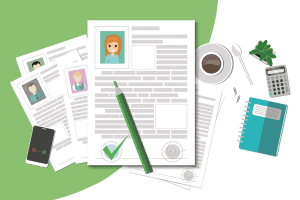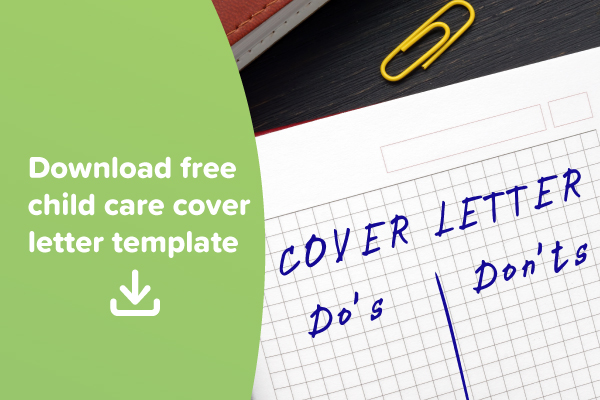You’ve completed the relevant qualifications, now it’s time to find a position in the early childhood education sector!
While you should be feeling job-ready, even the thought of writing a resume can be daunting – but don’t worry we’ve got you!
To help, we’ve rounded up 10 tried and tested resume tips that will help you land the interview.
1. Gather the information you need
The first thing to do is look at a resume template online and all the things that need to be included. Education information, dates, email address, references, employment history… Get the details you need so that you’re organised to begin with.
2. Use a resume template (but customise it)
Unless you’re a whiz with a word processor or design, using one of the many resume templates available online is a great idea. But make sure you customise it so that it’s relevant to the job you’re applying for.
3. Keep it simple and clear
Chances are the person who receives your resume and job application will have the task of reading through many other applications. They most likely don’t have time to trawl through 10 pages about you, so keep it down to two pages if possible. And while a little creative flair is great, steer clear of fancy fonts that can make things unclear. Clear subheadings and dot points can help make it easy to read too.
4. Be professional
Professionalism is important, so while cutiepiesarah@gmail.com is acceptable in your personal life, sarah.adams@gmail.com is more appropriate for work. Make sure your social media profiles are either private or have any unprofessional material removed too. It’s not uncommon for employers to screen job applicants by searching for them on Facebook, Twitter and Instagram.
5. Read the application carefully
Job application requirements can vary, so take care to double check what they are asking for. Do they ask for a cover letter? Are references required?
6. Follow the submission instructions
Following on from number 5 above, make sure you know how you are meant to submit your application. Is it via email or via a website or online portal? Do they want a .doc or .pdf format?
7. References
At some stage in the interviewing process a potential employer will want to contact references to learn more about you. These can be trainers, teachers or previous employers who have an insight into working with you. In the references section of your resume, you could include the names and contact details for your references, or make note that references are available upon request.
8. Highlight your strengths
Most of us don’t naturally talk ourselves up but for the purpose of a resume, give yourself some credit! Highlighting your strengths will help your interviewer to get a clear view of your capabilities and will overcome any areas that you may be lacking in experience.
9. Proofread
Spelling errors, weird spacing, missing apostrophes… It’s the little things that count and it demonstrates your attention to detail. Read over your resume and even ask a friend or family member to read it for you too.
10. Follow up
Instead of feeling glum about not hearing back about your application in the timeframe you might have hoped for, make contact. A follow up call or email shows you are interested, confident and take initiative. Go get ‘em!
Download our helpful guide
To receive a copy of the tips above to help you write a winning resume, download our helpful infographic by completing the form below:
For more support with your job search, read our helpful article on ‘Essential tips to prepare for a job interview‘.




